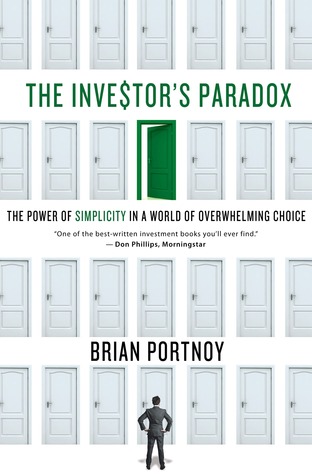Questions from Readers
Miscellaneous questions post — here goes:
Thank you very much for your blog! I am hooked since I found it and have been getting smarter by the day!
I like Safety Insurance Group, found it through your blog, noticed you were no longer long. They don’t do life insurance, just cars and houses – I know you say not to mix because they are sold and underwritten differently. They had a rough Q1 but a good 2013, seems like the winter Mass weather might have done it. They are over Book of 1 so there are other insurers that are cheaper, but they look like a good compliment to NWLI (also found through you and like very much) in the auto space, in a small (and thus dominate-able) market.?
Am I missing something about SAFT??
Many sincere thanks David!
I like the management team at Safety Insurance. ?When I met with them years ago, they impressed me as bright businessmen competing well in one of the most dysfunctional insurance markets in the US — Massachusetts. ?Most major insurers did not write auto and home insurance there as a result. ?But then the state of Massachusetts began to loosen up their tight regulations, and some of the bigger insurers that stayed away have entered — GEICO, MetLife, Liberty Mutual, etc.
When the market was more closed, SAFT had strategies that allowed them to profitably take market share Commerce Group [now Mapfre]. ?With more competition in Massachusetts, Safety’s earnings have suffered. ?I can’t get excited about a short tail P&C insurer trading above book at 13-14x forecast earnings.
Maybe people are buying it for the 4%+ dividend. ?I don’t use dividend yield as an investment criteria, for the most part. ?I would avoid Safety Insurance. ?It’s well-run, but the price of the stock is too high. ?If it drops below $35, it would be a compelling buy.
Hi David,
I was interested in your comment on Normalized Operating Accruals as an indicator of accounting quality.
Why is this?
I tend to view changes in accruals as an indication of the underlying strength of a business, but would appreciate your insight on this.
Thanks
The idea behind net?operating accruals is that accrual entries represent future cash flows, which are less certain than cash flows that have already happened. ?Companies that report high levels of accounts receivable, inventories, etc., as a fraction of assets or earnings, tend to offer negative earnings surprises, because many of those accruals will not convert to cash as expected.
Here is how I measure Net Operating Accruals:
(Total assets – Cash ?- (Total liabilities – Short-term debt – Preferred stock – Long-term debt))/Total assets (or earnings)
An apology here, because the term commonly used is “net operating accruals” and I messed up by calling it “normalized.”
Companies with conservative accounting (fewer accruals) tend to have stronger earnings than those that are more liberal in revenue recognition.
Dave, you and I are too old school. We need to move into this century. The way that most people seem to get into the investment industry has nothing to do with what you talk about. It is far easier to become a “financial advisor” that pushes annuities on the 60+ crowd. You don’t really have to learn anything about investing. All you need to know is about salesmanship. Offer a free lunch/dinner and reel them in!
I honestly think that more folks are going this route instead of the “hard way” you have outlined. . .
Maybe you can do a sarcastic post: “How to NOT be valuable, but make a lot of money in the Investment Business.”
Personally I find the annuity and non-traded REIT pushers very repulsive. At the same time, I know several of them that have done very well . . .
There are two factors at work here — yield and illiquidity. ?The need for yield is driven by monetary policy. ?Particularly with a?sizable?increase in retirees, many of whom can’t make enough “income” when interest rates are so low, they take undue risks to get “income,” not realizing the risks of capital loss that they are taking.
When I was an analyst/manager of Commercial Mortgage Backed Securities, there was a key fact one needed to understand: safe mortgages?do not depend on whether the businesses leasing the properties operate well or not. ?Safe mortgages have no operational risk, and thus avoid theaters, marinas, etc. ?Stick to the four food groups: Multifamily, Retail, Office, and Industrial.
There will be negative events with insecure investments offering a high yield. ?You may not get the return of your money, as you try to get a high return on your money.
Then there is the illiquidity — that is what allows the sponsors the ability to pay high commissions to those who sell the annuities and non-traded REITs. ?Because the investors can’t leave the game, the income stream of the sponsor is very certain. ?They take a portion of the anticipated income stream, and pay it in a lump sum to their agents as a commission. ?And that is why the agents are so highly motivated.
Eventually, the demand for yield will be disappointed. ?Uncertain yields will fail in a crisis, and reset much lower. ?Income that stems from dividends, preferred dividends, MLPs, junk bonds, structured notes, etc., is not secure in the short-to-intermediate run. ?It is far better to invest to grow value than to invest for income. ?They can pay you a yield, sure, but if the underlying value is not growing, you will eventually get capital losses, and after that, much less yield.
Look for safety in yield investments. ?If you are going to take risks in investing, take risk, but ignore the income component. ?Don’t stretch for yield.



